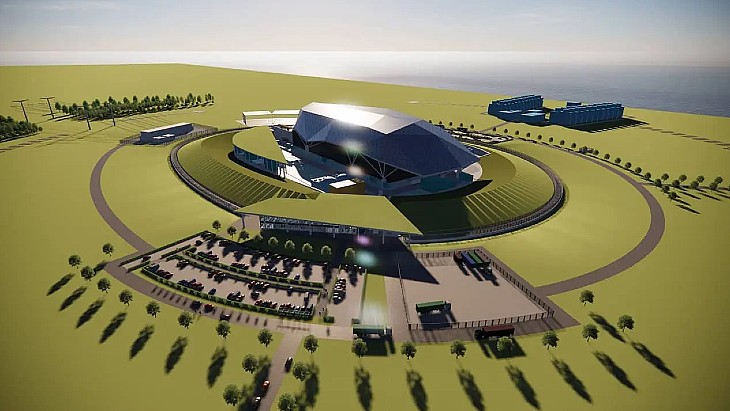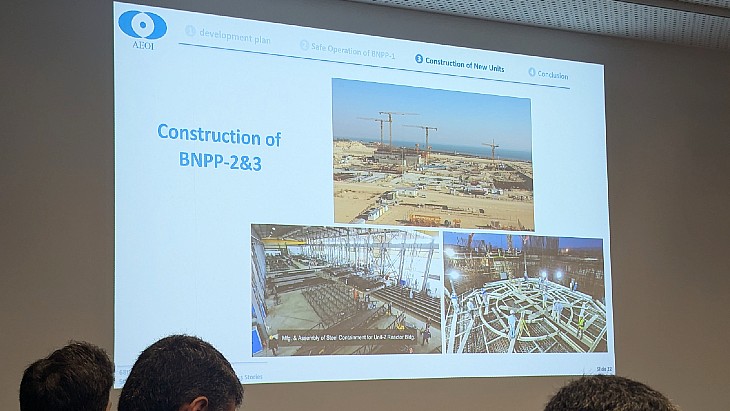Canadian MoUs advance microreactor deployment
.jpg)
The MoU between SRC and Westinghouse Electric Canada will jointly develop a project to locate an eVinci microreactor in Saskatchewan for the development and testing of industrial, research, and energy use applications.
Saskatchewan is home to the largest and highest-grade uranium mines in the world, but does not currently have any nuclear power reactors. Since 2019, it has been collaborating with the provinces of New Brunswick and Ontario - later joined by Alberta - to advance the development and deployment of small modular reactors (SMRs) to address climate change.
"For 38 years, SRC was the licensed owner and operator of a SLOWPOKE-2 nuclear reactor, and we look forward to building on that experience with Westinghouse," Minister Responsible for SRC Jeremy Harrison said. "The hands-on experience SRC gained can be applied to emerging nuclear technology, such as SMRs, as we consider how to best power our future."
"Modern nuclear reactors have the ability to provide the safe, clean, and baseload power that Saskatchewan people rely on for their everyday needs," said Don Morgan, the minister responsible for provincial utility for SaskPower. "The advancement of nuclear power in our province will not only modernize our power grid, but result in billions of dollars in additional economic activity."
The eVinci is a heatpipe reactor that can produce 5 MW of electricity and 13 MW of high-temperature heat, and can operate in combined heat and power mode. Westinghouse says this "nuclear battery" provides power solutions at a different scale than centrally generated utility-scale power. It can support various applications including remote mining operations, remote communities, individual industrial heat and power scenarios, distributed hydrogen generation and integrated energy solutions.
In March, the Canadian government announced plans to invest CAD27.2 million (USD21.6 million) in the eVinci microreactor through Innovation, Science and Economic Development Canada's (ISED) Strategic Innovation Fund.
McMaster partnership
McMaster University, UNSC and Global First Power said their new partnership will advance research in small modular reactors and help pave the way for Canadian communities considering the adoption of this new approach to greenhouse gas-free energy, which will play in essential role in Canada's Net Zero by 2050 goal, the partners said. GFP - a partnership between USNC and Ontario Power Generation - is already working to deploy Seattle-based USNC's MMR technology in Canada, and plans to build and operate a unit at Canadian Nuclear Laboratories' Chalk River in Ontario.
Dave Tucker, McMaster's assistant vice-president, research (nuclear) said the newly announced partnership builds on the university's rich nuclear expertise and follows its contributions to Canada's SMR Action Plan. "Combining our capabilities with those of USNC and GFP will allow us to conduct life-cycle studies on the optimal utilisation of SMRs and train the next generation of experts that will build, operate, maintain, monitor and regulate these facilities," he said.
The partnership is an important step in the launch of the university's SMR feasibility study, Tucker said. The feasibility study is an estimated 18-month initiative in consultation with community, business, and government stakeholders, including Indigenous communities and municipal councils.
"We have over 60 years of experience operating a community-based nuclear reactor safely and efficiently, and the subsequent health, research and economic benefits continue to advance the health and well-being of society," he said. "It's incumbent upon us to use our knowledge and expertise to help Canada meet its Net-Zero target."
Much of the research and training will take place at the Chalk River site, GFP President and CEO Dominique Minière said. "It's the most advanced SMR project in the country and, arguably, the Western world," said Minière, adding that the project is expected to be operational in 2027.
The MMR is a 15 MW thermal, 5 MW electrical high-temperature gas-cooled reactor, currently undergoing licensing in Canada and the USA. The University of Illinois at Urbana-Champaign last year informed US nuclear regulators of plans to construct an MMR unit on its campus.
_92619.jpg)

_84504.jpg)







_88592.jpg)

